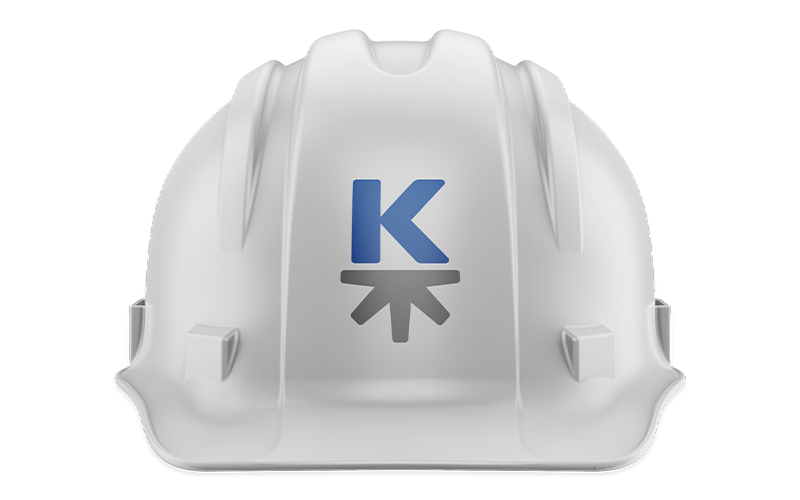Blogs for Blue Collar Brands: Guide to SEO Best Practices

Blue collar brands refer to companies who engage in hard manual labor–typically agriculture, manufacturing, construction, mining, energy, or industrial services. Deciding to incorporate a blog page for your blue collar company website can seem like a daunting task. Particularly when faced with the internal jargon and acronyms that are inherent in SEO and digital marketing.
Done correctly, creating great content for your blog can expand your blue collar brand, drive sales, and bring in new business. A well-written, engaging, optimized blog has the potential to be a hugely cost-effective method for promoting your blue collar business.
In this guide, we are going to explain some of the terminology, provide you with clear and straightforward guidelines, and offer advice on who should write the articles for your blue collar brand blog.
What is SEO?
Search Engine Optimization encompasses the many methods used by search engines, like Google, to rank websites and pages. It determines where they appear on a Search Engine Results Page (SERP). The aim of businesses is to rank as high up as possible, with the first page of search results as the ultimate goal.
Writing Blog Articles
Writing blog articles for a complex blue collar industry that most people don’t understand poses its own set of challenges.
“If you can't explain it to a six year old, you don't understand it yourself.”
―Albert Einstein
Here are some guidelines to connect to your chosen audience:
Simple is Better
Every blog article should be written in clear language that minimizes the use of blue collar industry jargon. If you have to use industry jargon, then provide a brief explanation for the uninitiated. You want to make your writing as accessible as possible.
Analogies and Examples
The use of analogies and examples can help your readers to understand complicated concepts. If you use relatable analogies, you will also create a connection with your readers.
Infographics
The use of infographics is very effective in conveying large amounts of information and clarifying complicated ideas.
Article Length
Blogging statistics have shown that blog posts keep getting longer. The data also shows that longer content performs better . Articles of 1,500 words or more perform best in search. However, what’s more important than the length of your articles is the quality of their content.
Writing for Your Clients
To create maximum value for your clients and your blue collar business, you’ll want to provide a spectrum of articles that cover the various facets of your industry and promote your brand, products, and services.
Guidelines for article topics include:
Solving Client Problems
If you're aware of specific problems your clients face you can write articles that provide solutions to these problems. These types of articles often have the additional benefit of developing your brand authority.
To find suitable topics for these types of articles, refer to known Frequently Asked Questions (FAQs) asked by your clients, look through past email correspondence, and brainstorm with your team.
Brand Promotion
Writing articles about your company’s internal practices, such as safety procedures, can communicate your business’ integrity and professionalism. These types of articles can create confidence in your clients and serve as a valuable information source for your employees.
Industry Insights
Articles about new developments and emerging trends within your industry provide fresh information for your readers. These articles also demonstrate that your company keeps abreast of new developments. This also adds to your brand authority and can engender greater trust from your clients.
Case Studies
Publishing case studies is a very effective method to build client trust and a great marketing tool. Case studies should include a brief overview of the client/project, the challenges faced, how you helped the client overcome them, and what the successful outcome means for the client.
Frequently Asked Questions
Not only a source for client problems to solve. FAQs provide insight into what questions clients have about all aspects of your industry and a host of related topics. By writing articles that address these questions, you demonstrate that your company understands them and their needs.
Self Write or Hire?
Deciding whether to write articles yourself or whether to hire a writer has pros and cons, whichever route that you take.
Self Write Pros
- Writing articles yourself or appointing an internal employee has the advantage of ensuring a proper understanding of your industry.
- An internal employee also understands your company and its clients better. This can create better resonance with readers as the writer displays innate knowledge of the business landscape .
- There is not normally any additional expense, as the employee appointed to write is already earning a salary.
Self Write Cons
- An appointed employee may not give full attention to the task of writing articles. It may be seen as an additional responsibility without any additional benefit.
- High quality articles require a skilled writer. An appointed employee may not have any experience nor have sufficiently developed writing skills to regularly create quality content.
Hiring Pros
- You are hiring a professional writer, whether through an agency or freelance. This provides a higher level of quality writing.
- A hired writer will put more effort and focus into their writing, as it is their primary job.
- A professional writer understands SEO and how to write their articles to take advantage of the many ranking methods used. This may result in increased exposure for your blue collar brand and awareness to potential clients.
Hiring Cons
- A lack of industry-specific knowledge can result in articles that don’t add significant value due to their lack of deep understanding.
- Clients within the industry may notice the lack of understanding in your articles and this will undermine their trust and your brand authority.
The Role of White Hat And Black Hat Techniques
White Hat and Black Hat refer to techniques used to improve SEO and ranking in searches.
While internal links are a great way to tie your website together and provide information pathways for your readers, backlinking is one of the most important aspects of SEO and site ranking in searches. Backlinks are one-way links between websites. They’re used by the major search engines as trust markers for the value of a specific web page.
White Hat SEO is abiding by the ethical guidelines of SEO and includes writing useful content with accurate keywords, meta tags, and relevant linking.
Black Hat SEO uses tricks and hacks to falsely promote a site or page's value. Some of the techniques used in Black Hat SEO include buying backlinks, creating content solely for the purpose of ranking on search engines, spamming blog comments, and having hidden text within an article.
It’s advisable to avoid Black Hat techniques and stick to the ethical guidelines and practices. White Hat practices will serve your customers best and increase your chances of ranking highly on search engines like Google.
In Summary
The benefits of well-written blog articles for your blue collar brand can have a lasting and positive impact on your company’s bottom line.
And while there is a lot of ground to cover to optimize your business’ website, articles, and SEO ranking, once you have the know-how, you can make a start.
We hope that this article has provided an entry point for you to utilize these important aspects of your company’s online presence.
If you are interested in learning more about our approach to the items discussed in this article, call (970) 744-3611 or send us an email so we can talk about what that would look like.


